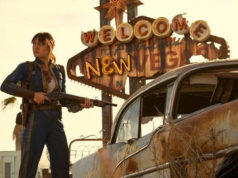A couple of months ago, Persepolis was the trendy pick among some movie critics as 2007’s best animated film.
Honestly, I was pulling for it. I don’t like to sound like the proverbial broken record, droning on about the excellence of Pixar, and this filmed version of Marjane Satrapi’s colossal graphic novel memoir seemed to have the pedigree to outdo Pixar’s Ratatouille. It even pissed off the Iranian government at Cannes last summer, which is always a point in a movie’s favor. Alas, this overambitious piece turns out to be too faithful to its source to be anything more than mediocre.
The graphic novel remains the best introduction to this story, as well as a classic of the form. Originally written in French in 2000 and published in America in 2003, the novel told the story of Satrapi’s childhood growing up in Tehran in the late 1970s and early ’80s. Her French-speaking parents were part of the country’s educated elite and were initially happy to see the Shah toppled. Then, of course, the mullahs took over and replaced the corrupt old regime with something far worse. Like the book, the movie adopts the perspective of the imaginative and willful little Marji (voiced by Gabrielle Lopes as a girl and Chiara Mastroianni as a young woman) as she struggles to comprehend life in this new country, where she can’t listen to rock music anymore and has to watch her mother get slapped around in the street by soldiers for going out in public with her head uncovered.
The film is a collaborative effort between Satrapi and animator Vincent Paronnaud, and the author’s participation ensures that the animation preserves the book’s distinctive black-and-white cartoon look. On paper, this drawing style proved to be endlessly adaptable, evoking delicate filigree, stark horror, and uproarious moments of comedy. These qualities are all muted in the film, though, probably because the filmmakers make the mistake of adapting all of Persepolis, which was published in four parts in France and two installments here. The work’s second half, addressing Marjane’s student life in Austria and her attempt to return to her homeland, is carefully observed but lacks the dramatic fireworks of the first half. The rush to fit everything in has the effect of considerably watering down the book’s depiction of the harshness of post-Islamic revolution Iran. The awful fate of Marjane’s Jewish neighbors down the block during an Iraqi bombing raid receives only a glancing reference.
The voice actors here include some of France’s biggest stars, including Mastroianni’s real-life mother, Catherine Deneuve, as Marjane’s mother. The real standout, though, is 90-year-old Danielle Darrieux (who has worked steadily as an actress for the last 75 years), who invests Marjane’s earthy grandmother with an unshakable authority warmer and wiser than any fundamentalist cleric could manage. This characterization matches the power of the original Persepolis in print. Too bad the rest of the movie couldn’t follow suit.
Persepolis
Voices by Chiara Mastroianni and Catherine Deneuve. Written and directed by Marjane Satrapi and Vincent Paronnaud, based on Satrapi’s graphic novels. Rated PG-13. Opens Friday at UA Fossil Creek.











